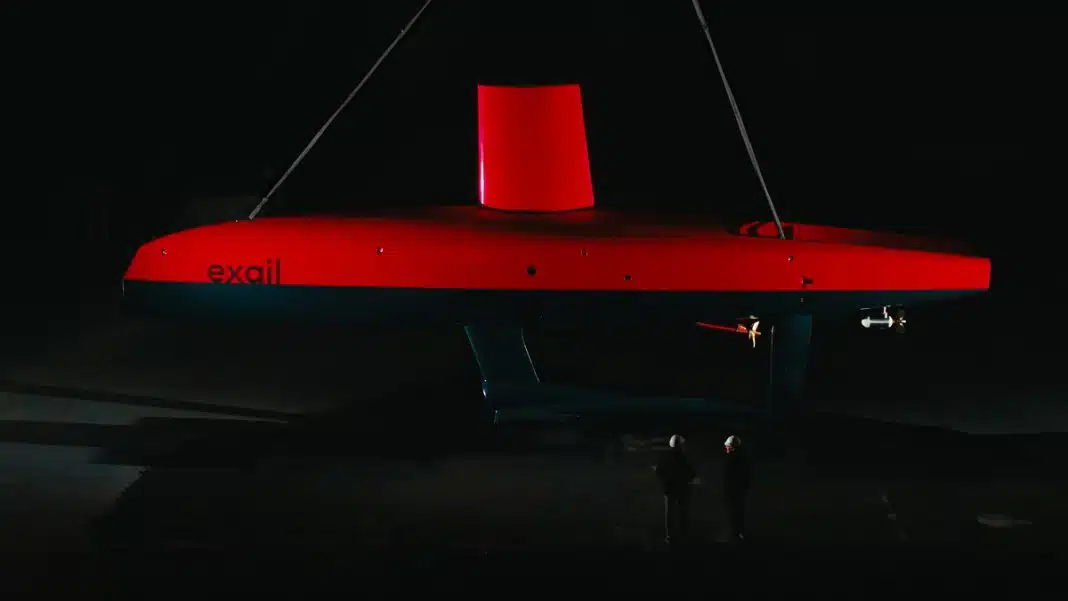Exail, a leading provider of maritime autonomy solutions, has unveiled its new transoceanic Uncrewed Surface Vessel (USV), the DriX O-16. Benefitting from an autonomy of 2,500 Nm and a unique naval architecture that enables the USV to withstand the most severe ocean conditions, the new DriX O-16 has been designed for long-duration operations (up to 30 days) and can deploy multiple payloads and subsea assets.
The new USV leverages the successful track record of the already existing DriX USV, launched back in 2017 and that accumulates over 150,000 hours of operations at sea in more than 19 countries. The new DriX O-16 benefits from a hybrid propulsion, redundant architecture, advanced communication systems, as well as AI powered obstacle detection and avoidance capabilities. It offers a high level of reliability and operational efficiency, and new multi-mission capabilities, for enhanced autonomous operations at sea.
A versatile platform, Exail new transoceanic USV allows to launch and recover a wide range of subsea assets such as Remotely Operated Towed Vehicles (ROTVs), inspection-class Remotely Operated Vehicles (ROVs), as well as Autonomous Underwater Vehicles (AUVs). Its gondola, located below the surface, can further host a wide range of payloads such as deep-water Multibeam Echosounders (MBES), Sub-Bottom Profilers (SBP), or acoustic subsea positioning and communication systems (USBL). This makes the new DriX O-16 especially suited for full ocean depth scientific and hydrographic surveys, geophysical and UXO surveys, as well as subsea infrastructures inspection and surveys that might require the deployment of multiple robots.
“With this next-generation transoceanic low-carbon USV, we are pushing back the limits of ocean exploration, empowering collaborative autonomy between surface and subsea drones, while minimizing human exposure at sea,” explains Olivier Cervantes, VP Maritime Autonomy Solutions at Exail. “The introduction of our new DriX O-16 truly marks a significant stride in autonomous maritime operations, as multi-robot missions are definitely where we see the maritime industry and our own developments leaning in the coming years.”














